How Omega-3 Fish Oil Helps In Weight Loss – Dosage And Health Benefits
Having a few drops of this rich oil thrice a day may help you lose weight.

Image: Shutterstock
It is no secret that fish oil is great for weight loss (1). This natural and rich source of omega-3-fatty acids is a common weight loss supplement. But how does it work?
Research shows that fish oil reduces inflammation, improves heart health, minimizes the risk of diabetes, and promotes brain development (2). More importantly, fish oil reduces cortisoli A hormone produced by the adrenal glands that regulate your body’s response to stress and plays a role in appetite and fat storage. levels, which can help get rid of belly fat (3).
Read on to know how fish oil aids weight loss, dosage, and if it is safe to consume during pregnancy. Scroll down!
In This Article
What Is Fish Oil?
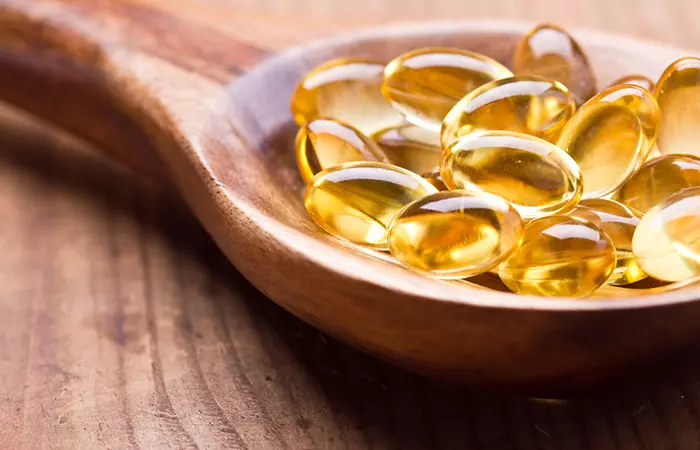
Fish oil is mainly derived from fatty fish and is loaded with polyunsaturated fatty acids (PUFAs), i.e., omega-3 and omega-6. Several studies showed that supplementing fish oil or eating fish could help reduce mortality from coronary heart diseasei A cardiovascular disease where the arteries are blocked due to plaque build-up, which obstructs the flow and circulation of blood. (4). Fish oil capsules benefit the body just as effectively and can be supplemented into the diet.
Now, let’s dig a little deeper. There are three types of omega-3 fatty acids – EPA (eicosapentaenoic acid), DHA (docosahexaenoic acid), and alpha-linolenic acid (ALA), and they are important for better human health.
ALA can be synthesized by humans but not EPA and DHA. Though ALA can be converted into EPA and DHA, the conversion percent is very low, and vegetarians need more ALA to meet the demand for omega-3 fatty acids (5). Taking fish oil supplements can help meet the requirement of omega-3 fatty acids.
 Trivia
TriviaLet’s find out how fish oil can help in weight loss in the next section.
How Fish Oil Aids Weight Loss
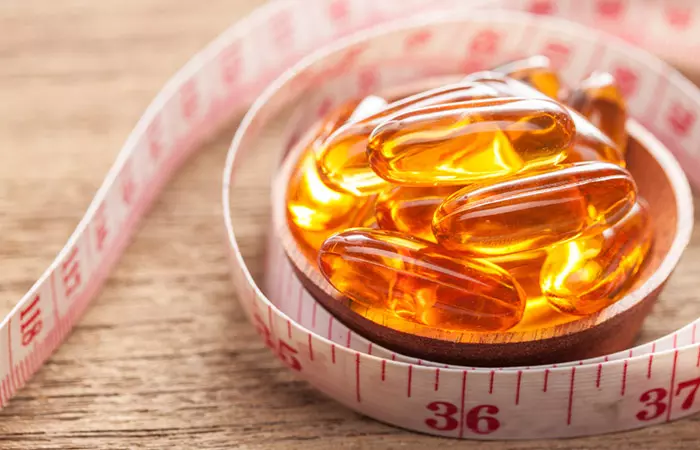
1. Fish Oil Restores Omega-3 And Omega-6 Fatty Acids Ratio For Weight Loss
In general, the ratio of omega-6 fatty acids to omega-3 fatty acids should be 1:1. But according to a study published in Biomedicine & Pharmacotherapy, this ratio is 15:1 or higher in Western diets (6). This may cause cardiovascular disease, inflammation, depression, and obesity.
You can restore the omega-6/omega-3 ratio by consuming fatty fish or taking fish oil supplements. This, in turn, reduces inflammation and inflammation-induced weight gain and improves lipid profilei A complete cholesterol test that measures the amount of fat and cholesterol levels in the blood. (7). This is the basic scientific logic behind fish oil’s weight loss properties.
2. Fish Oil May Increase Satiety
The omega-3s in fish oil aid weight loss by improving the hunger-satiety cycle. Individuals who want to slim down can go for fish oil supplementation after consulting their doctor.
In an experiment, obese patients were supplemented with long-chain omega-3 fatty acids along with diet restrictions. The patients were provided with 260 mg/day or 1300 mg/per day of fish oil omega-3 fatty acids, and their postprandial (post-meal) satiety was high (8).
3. Fish Oil May Improve Metabolic Rate
Fish oil helps in weight loss by improving metabolism.
The more your metabolic rate, the more you tend to lose weight.
An experimental study showed that supplementing with 3 g of fish oil omega-3 fatty acids per day improved metabolic rate by 14% and fat oxidation by 19% (9).
4. Fish Oil May Help Burn Fat
Fish oil supplementation may help burn and mobilize fat by accelerating fatty acid oxidation (break down of fatty acids).
Researchers from France conducted an experiment with a few healthy individuals. The participants were on a controlled diet for three weeks. They were given 6g/day of fish oil along with the same controlled diet for the next 12 weeks. After 12 weeks, it was found that fish oil induced fat oxidation (10).
5. Fish Oil May Help To Build Muscle Mass
Fish oil also helps build muscle, which helps to increase the metabolic rate.
Scientists have found that supplementing human participants with fish oil can aid muscle anabolism and improve muscle mass (11), (12), (13).
6. Fish Oil May Help You Lose Inches And Gain Lean Mass
The omega-3 fatty acids in fish oil can help you lose fat and build muscle mass.
According to a study published in the Journal of the International Society of Sports Nutrition, six weeks of supplementation with fish oil significantly decreased fat mass and increased lean mass in healthy adults (14). More studies are needed to determine this mechanism.
7. Fish Oil Lowers Triglyceride levels
When you consume a lot of unhealthy food and don’t work out, the triglyceridei A type of converted fat stored in the blood and used by the body to provide energy in between meals. levels go up. This puts you at risk of obesity and related diseases like heart disease, diabetes, atherosclerosis, etc.
It has been found that the omega-3 fatty acids in fish oil help lower serum triglyceride levels. Omega-3 fatty acids reduce the availability and delivery of fatty acids and decrease fatty acid synthesizing enzymes. This, in turn, prevents the formation of triglyceride molecules and protects you from gaining weight (viscerali The fat that is found deep in the abdominal cavity and may increase the risk of developing diabetes and heart diseases. and subcutaneous fat) (15).
8. Fish Oil Lowers LDL Cholesterol
Obesity may lead to higher levels of LDL cholesterol and lower levels of HDL or good cholesterol in the blood. A study found that supplementation with fish oil had decreased LDL cholesterol levels (16).
In another study, moderate amounts of fish oil (6g/day) were found to increase HDL or good cholesterol levels (17). Hence, if you need to lose weight, add fish oil to your diet. It will not only help you lose subcutaneous fati The fat found just under the skin due to a poor diet, insulin resistance, or a sedentary lifestyle. but also reduce the risk of obesity-related diseases.
9. Fish Oil Prevents Insulin Resistance
Your body can become insulin resistant if your blood sugar levels are constantly high. Insulin becomes insensitive to glucose and doesn’t take it up. This makes you feel hungry as your cells are devoid of glucose. As a result, you eat more and gain weight.
Researchers have found that short-term supplementation with fish oil can help increase insulin sensitivity in people with metabolic disorders (18).
10. Fish Oil Can Help Reduce Inflammation
Prolonged periods of stress in the body can also make you gain weight. Studies have confirmed that fish oil is anti-inflammatory. It helps reduce inflammation in the body by inhibiting the inflammatory pathways (19), (20).
These were the scientific reasons behind fish oil’s weight loss-aiding properties. Now, let’s find out how much fish oil you should take for weight loss.
Fish Oil Dosage For Weight Loss

You can either consume fatty fish or use fish oil pills or supplements for weight loss. Studies indicate that increasing the intake of long-chain omega-3 by 0.3-3 g/day can improve body composition and aid weight loss (21).
Remember, the dosage will vary depending on your age, medical history, current medications, etc. Hence, talk to your doctor before taking fish oil to determine the correct dosage for you.
There are many fatty fish and fish oil supplements available on the market. How do you know which one is the best?
What Is The Best Fish Or Fish Oil Supplement For Weight Loss?

All kinds of fish contain omega-3 fatty acids, but the best sources are fatty fish. Here’s a list of fatty fish that you can consume to lose weight:
- Wild salmon
- Mackerel
- Herring
- Tuna
- Pacific cod
- Hilsa
Tip:
Buy them from the local fish market instead of the supermarket.
If you cannot have fish or do not like eating them, use fish oil supplements or pills. Here’s what you need to look for in fish oil supplements:
- Check the EPA and DHA ratio of the fish oil supplement. Fish oil supplements should be able to provide 500 mg of combined EPA and DHA (22).
- The WHO recommends consuming fish oil that contains 0.2-0.5 grams of EPA/DHA (23).
- Choose a well known and reputable brand that has undergone third-party testing.
- Look for added substances that may be toxic for you.
Be particular about the type of fish oil you are using. Certain fish oil, like cod liver oil, is rich in vitamins A and D. The toxicity of these fat-soluble vitamins might be fatal for you. Always buy a fish oil supplement that your doctor has prescribed.
 Quick Tip
Quick TipWhat is the best time to consume fish oil?
When To Consume Fish Oil For Weight Loss
The best time to consume fish oil is
- 30-60 minutes after waking up
- 30 minutes before lunch
- 30 minutes before going to bed
There are innumerable health and wellness benefits of fish oil apart from weight loss – from reducing the risk of heart disease to making your hair lustrous and shiny. Take a look at the list of benefits below.
Fish Oil Health Benefits
- May lower blood pressure (24).
- Reduces the risk of arrhythmiai Issue with the rate or rhythm of a person’s heartbeat due to an underlying medical condition or genetics. (25).
- Helps reduce stress and anxiety (26).
- Slows down macular degenerationi A medical condition where the central part of the retina, called the macula starts deteriorating, causing significant vision loss. (27).
- Helps reduce swelling and pain and soothes sore muscles (28).
- Improves skin health (29).
- Reduces hair fall (30).
Keep reading to learn how you can preserve the quality and effectiveness of your fish oil for longer.
How To Store Fish Oil
- Keep the fish oil in a cool, dark place away from direct sunlight and other heat sources.
- Refrigerate the oil to prolong its shelf life and prevent it from turning rancid.
- Seal the bottle tightly after every use to minimize air exposure that may otherwise lead to oxidation.
- Avoid storing it near strong-smelling items, as fish oil can absorb odors.
- Pay attention to the expiration date, as expired fish oil may not deliver the intended health benefits.
- Always check the manufacturer’s instructions on the label, as some fish oil variants may have specific requirements.
Follow these tips to ensure your fish oil remains fresh and potent and boosts your overall well-being. But, is taking fish oil during pregnancy safe? Find out next.
Is taking fish oil safe during pregnancy? Find out next.
Is It Safe To Consume Fish Oil During Pregnancy?

The omega-3 fatty acids EPA and DHA have a positive effect on the baby and the mother. They help in brain and eye development and prevent allergies in infants. Consuming fish oil supplements can prevent preterm delivery (31).
Make sure you consult your doctor to find out the dosage and time of consumption or if you should consume fish oil at all.
Coming back to weight loss with fish oil, is only eating fatty fish or taking fish oil pills going to help you lose weight? To an extent, yes. But then, it all comes down to your lifestyle. Check out this list to know what you should do to lose weight.
Lifestyle Changes You Need For Weight Loss With Fish Oil
- Consume five different types of veggies, three times a day.
- Have three different types of fruits, two times a day.
- For best results, consume fish oil supplements at the specified times.
- Have different types of fatty fish every day, at least in one meal.
- Consume other sources of lean protein to get all kinds of amino acids.
- Consume other sources of healthy fats, like nuts, ghee, olive oil, etc.
- Avoid eating out.
- Avoid alcohol.
- Avoid junk, processed, and deep-fried foods.
- Check your body fat percent every month.
- Check your weight and click pictures every two weeks to keep track of your weight loss.
- Workout regularly. Do a mix of cardio, HIIT, and strength training.
- Practice meditation.
- Take out 10 minutes of your time to enjoy the quiet.
- Play a sport, walk for a social cause, teach poor kids at a local school, or spend quality time with family, friends, or your pet.
- Switch off your mobile, laptop, TV, Xbox, etc. and read a book before sleeping.
- Sleep for 7-8 hours.
Infographic: 6 Top Reasons To Use Fish Oil For Weight Loss
Fish oil is rich in omega-3 fatty acids. That is why its supplements are used widely for improving heart, brain, and skin health. They contain omega-3 fatty acids that are required for smooth body functioning. Check out the infographic below to understand how to use fish oil for weight loss.
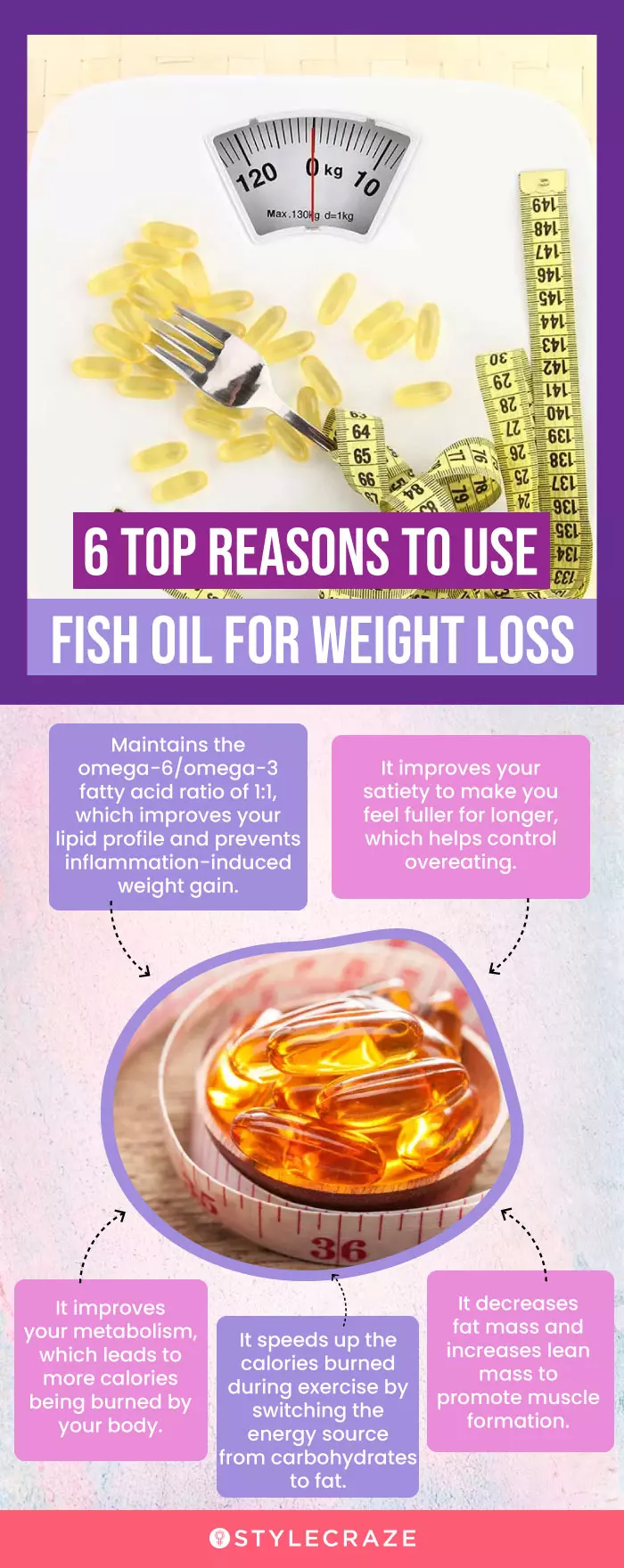
Illustration: StyleCraze Design Team
Fish oil, a rich source of omega-3 fatty acids, is often used as a weight-loss supplement. Fish oil for weight loss works because it reduces cholesterol levels and has an anti-inflammatory effect on the body. In addition, it may improve metabolic rate, facilitate fat burning, help gain muscle mass and increase satiety. You can choose fish oil supplements or consume fatty fish such as mackerel, cod, tuna, hilsa, or salmon to meet your omega-3 fatty acid needs. To lose weight in the long term, combine fish oil supplementation with lifestyle and dietary changes.
Frequently Asked Questions
How much weight can I lose with fish oil supplementation?
Regular fish oil supplementation can help you lose 0.5 kg per week and maintain fitness. This can be accelerated if balanced with healthy foods and exercise. Consult with a doctor before taking any supplements.
Does fish oil burn belly fat?
Fish oil has an anti-obesity effect and is helpful in reducing abdominal fat if combined with healthy habits and exercise (32).
What happens if you take fish oil every day?
Anything within the permissible limit is beneficial for health. Choose the correct fish oil and check with the doctor how much should be taken. Studies showed that 300-3000 mg of fish oil could be taken for weight loss (21).
Is it better to take fish oil in the morning or at night?
You may take fish oil any time during the day as it is a slow-acting supplement with long-term effects. However, you may find it easier on digestion to split your dose and have part of it in the morning and the other part at night.
Key Takeaways
- Fish oil may build muscles that increase your metabolic rate.
- They restore the ratio of omega-3 and omega-6 fatty acids ratio, which may help in weight loss.
- It may reduce stress and anxiety.
- The benefits of fish oil can be found through fatty fish, supplements, or fish oil pills.
Illustration: Fish Oil For Weight Loss – How It Works Dosage And Health Benefits

Image: Dall·E/StyleCraze Design Team
References
Articles on StyleCraze are backed by verified information from peer-reviewed and academic research papers, reputed organizations, research institutions, and medical associations to ensure accuracy and relevance. Read our editorial policy to learn more.
- Effects of supplemental fish oil on resting metabolic rate, body composition, and salivary cortisol in healthy adults
https://www.ncbi.nlm.nih.gov/pmc/articles/PMC2958879/ - Omega-3 Polyunsaturated Fatty Acids: Benefits and Endpoints in Sport, Nutrients, US National Library of Medicine, National Institutes of Health.
https://www.ncbi.nlm.nih.gov/pmc/articles/PMC6357022/ - Fish oil supplementation reduces cortisol basal levels and perceived stress: a randomized, placebo-controlled trial in abstinent alcoholics, Molecular Nutrition & Food Research, US National Library of Medicine, National Institutes of Health.
https://pubmed.ncbi.nlm.nih.gov/23390041/ - Accumulated evidence on fish consumption and coronary heart disease mortality: a meta-analysis of cohort studies, Circulation, US National Library of Medicine, National Institutes of Health.
https://pubmed.ncbi.nlm.nih.gov/15184295/ - Achieving optimal essential fatty acid status in vegetarians: current knowledge and practical implications, The American Journal of Clinical Nutrition, US National Library of Medicine, National Institutes of Health.
https://pubmed.ncbi.nlm.nih.gov/12936959/ - The importance of the ratio of omega-6/omega-3 essential fatty acids, Biomedicine & Pharmacotherapy, US National Library of Medicine, National Institutes of Health.
https://pubmed.ncbi.nlm.nih.gov/12442909/ - An Increase in the Omega-6/Omega-3 Fatty Acid Ratio Increases the Risk for Obesity, Nutrients, US National Library of Medicine, National Institutes of Health.
https://www.ncbi.nlm.nih.gov/pmc/articles/PMC4808858/ - A diet rich in long chain omega-3 fatty acids modulates satiety in overweight and obese volunteers during weight loss, Appetite, US National Library of Medicine, National Institutes of Health.
https://pubmed.ncbi.nlm.nih.gov/18602429/ - Omega-3 Fatty Acid Supplementation for 12 Weeks Increases Resting and Exercise Metabolic Rate in Healthy Community-Dwelling Older Females, PloS One, US National Library of Medicine, National Institutes of Health.
https://www.ncbi.nlm.nih.gov/pmc/articles/PMC4682991/ - Effect of dietary fish oil on body fat mass and basal fat oxidation in healthy adults, International Journal of Obesity and Related Metabolic Disorders, US National Library of Medicine, National Institutes of Health.
https://pubmed.ncbi.nlm.nih.gov/15481762/ - Omega-3 polyunsaturated fatty acids augment the muscle protein anabolic response to hyperaminoacidemia-hyperinsulinemia in healthy young and middle aged men and women, Clinical Science, US National Library of Medicine, National Institutes of Health.
https://www.ncbi.nlm.nih.gov/pmc/articles/PMC3499967/ - Fish oil increases muscle protein mass and modulates Akt/FOXO, TLR4, and NOD signaling in weanling piglets after lipopolysaccharide challenge, The Journal of Nutrition, US National Library of Medicine, National Institutes of Health.
https://pubmed.ncbi.nlm.nih.gov/23739309/ - Dietary omega-3 fatty acid supplementation increases the rate of muscle protein synthesis in older adults: a randomized controlled trial, The American Journal of Clinical Nutrition, US National Library of Medicine, National Institutes of Health.
https://www.ncbi.nlm.nih.gov/pmc/articles/PMC3021432/ - Effects of supplemental fish oil on resting metabolic rate, body composition, and salivary cortisol in healthy adults, Journal of the International Society of Sports Nutrition, US National Library of Medicine, National Institutes of Health.
https://www.ncbi.nlm.nih.gov/pmc/articles/PMC2958879/ - Why do omega-3 fatty acids lower serum triglycerides? Current Opinion in Lipidolgy, US National Library of Medicine, National Institutes of Health.
https://pubmed.ncbi.nlm.nih.gov/16832161/ - Inhibition of low density lipoprotein synthesis by dietary omega-3 fatty acids in humans, Arteriosclerosis, US National Library of Medicine, National Institutes of Health.
https://pubmed.ncbi.nlm.nih.gov/6712540/ - The effect of fish oil on blood pressure and high-density lipoprotein-cholesterol levels in phase I of the Trials of Hypertension Prevention. Trials of Hypertension Prevention Collaborative Research Group, Journal of hypertension, US National Library of Medicine, National Institutes of Health.
https://pubmed.ncbi.nlm.nih.gov/7769501/ - Fish oil supplementation and insulin sensitivity: a systematic review and meta-analysis, Lipids in Health and Disease, US National Library of Medicine, National Institutes of Health.
https://www.ncbi.nlm.nih.gov/pmc/articles/PMC5496233/ - Omega-3 Supplementation Lowers Inflammation and Anxiety in Medical Students: A Randomized Controlled Trial, Brain, bBehavior, and Immunity, US National Library of Medicine, National Institutes of Health.
https://www.ncbi.nlm.nih.gov/pmc/articles/PMC3191260/ - Omega-3 fatty acids in inflammation and autoimmune diseases, Journal of the American College of Nutrition, US National Library of Medicine, National Institutes of Health.
https://pubmed.ncbi.nlm.nih.gov/12480795/ - Long-Chain Omega-3 Polyunsaturated Fatty Acids May Be Beneficial for Reducing Obesity—A Review, Nutrients, US National Library of Medicine, National Institutes of Health.
https://www.ncbi.nlm.nih.gov/pmc/articles/PMC3257626/ - Essential Fatty Acids, Linus Pauling Institute, Oregon State University.
https://lpi.oregonstate.edu/mic/other-nutrients/essential-fatty-acids - Omega-3 Fatty Acids National Institutes of Health, Office of Dietary Supplements.
https://ods.od.nih.gov/factsheets/Omega3FattyAcids-HealthProfessional/ - Effects of 12-week supplementation of marine Omega-3 PUFA-based formulation Omega3Q10 in older adults with prehypertension and/or elevated blood cholesterol, Lipids in Health and Disease, US National Library of Medicine, National Institutes of Health.
https://www.ncbi.nlm.nih.gov/pmc/articles/PMC5745982/ - The role of fish oil in arrhythmia prevention, Journal of Cardiopulmonary Rehabilitation and Prevention, US National Library of Medicine, National Institutes of Health.
https://pubmed.ncbi.nlm.nih.gov/18360184/ - Fish oil and depression: The skinny on fats, Journal of Integrative Neuroscience, U.S. National Library of Medicine, National Institutes of Health.
https://www.ncbi.nlm.nih.gov/pmc/articles/PMC6087692/ - High concentrations of plasma n3 fatty acids are associated with decreased risk for late age-related macular degeneration, The Journal of Nutrition, US National Library of Medicine, National Institutes of Health.
https://pubmed.ncbi.nlm.nih.gov/23406618/ - Omega-3 Fatty Acids and Skeletal Muscle Health, Marine Drugs, US National Library of Medicine, National Institutes of Health.
https://www.ncbi.nlm.nih.gov/pmc/articles/PMC4663562/ - Cosmetic and Therapeutic Applications of Fish Oil’s Fatty Acids on the Skin, Marine Drugs, US National Library of Medicine, National Institutes of Health.
https://www.ncbi.nlm.nih.gov/pmc/articles/PMC6117694/ - Mackerel-Derived Fermented Fish Oil Promotes Hair Growth by Anagen-Stimulating Pathways, International Journal of Molecular Sciences, US National Library of Medicine, National Institutes of Health.
https://www.ncbi.nlm.nih.gov/pmc/articles/PMC6164340/ - Omega-3 Fatty Acid Supplementation During Pregnancy, Reviews in Obstetrics & Gynecology, US National Library of Medicine, National Institutes of Health.
https://www.ncbi.nlm.nih.gov/pmc/articles/PMC2621042/ - Does Fish Oil Have an Anti-Obesity Effect in Overweight/Obese Adults? A Meta-Analysis of Randomized Controlled Trials, PloS One, US National Library of Medicine, National Institutes of Health.
https://www.ncbi.nlm.nih.gov/pmc/articles/PMC4646500/
Read full bio of Madhu Sharma
Read full bio of Charushila Biswas
Read full bio of Ravi Teja Tadimalla
Read full bio of Aparna Mallampalli






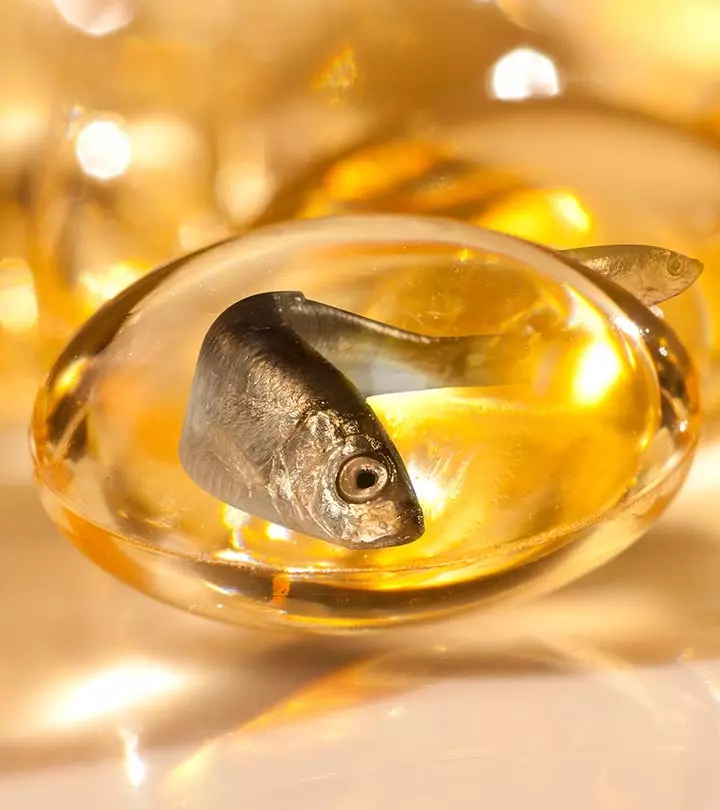
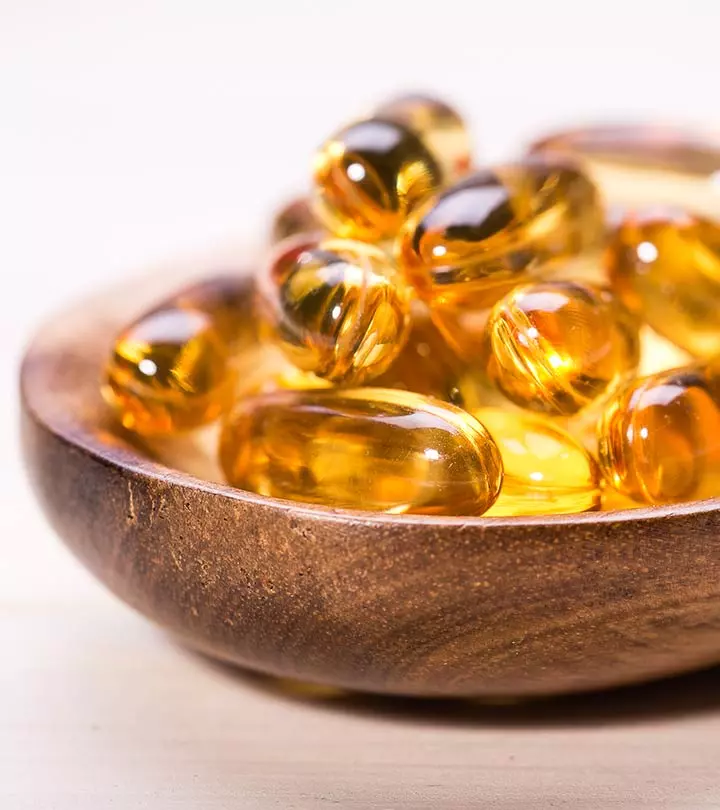

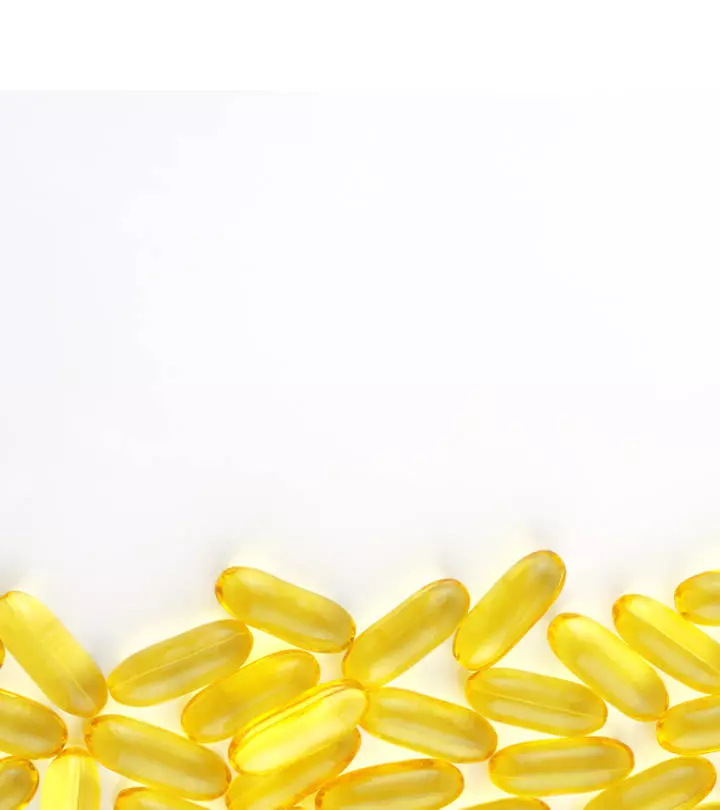














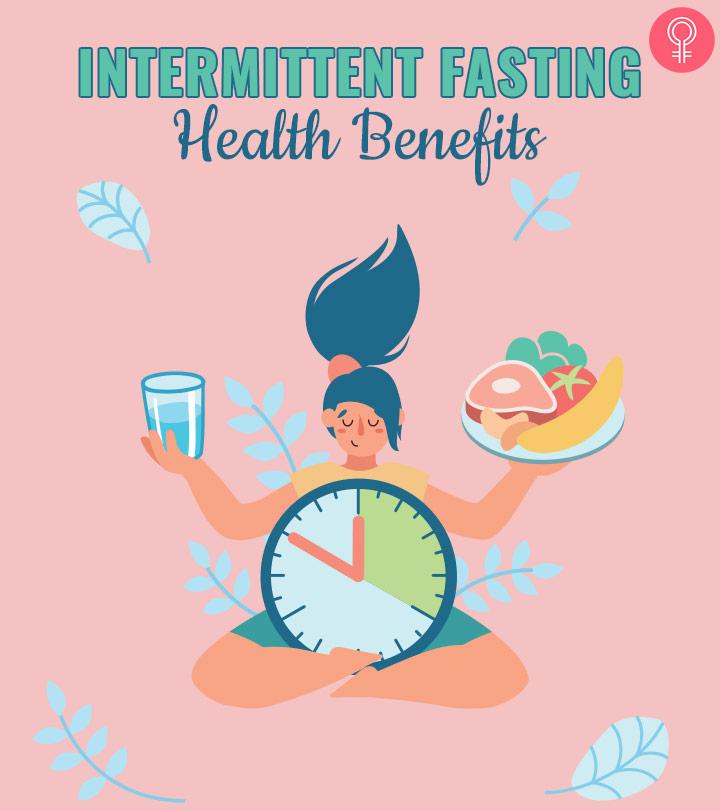

Community Experiences
Join the conversation and become a part of our empowering community! Share your stories, experiences, and insights to connect with other beauty, lifestyle, and health enthusiasts.